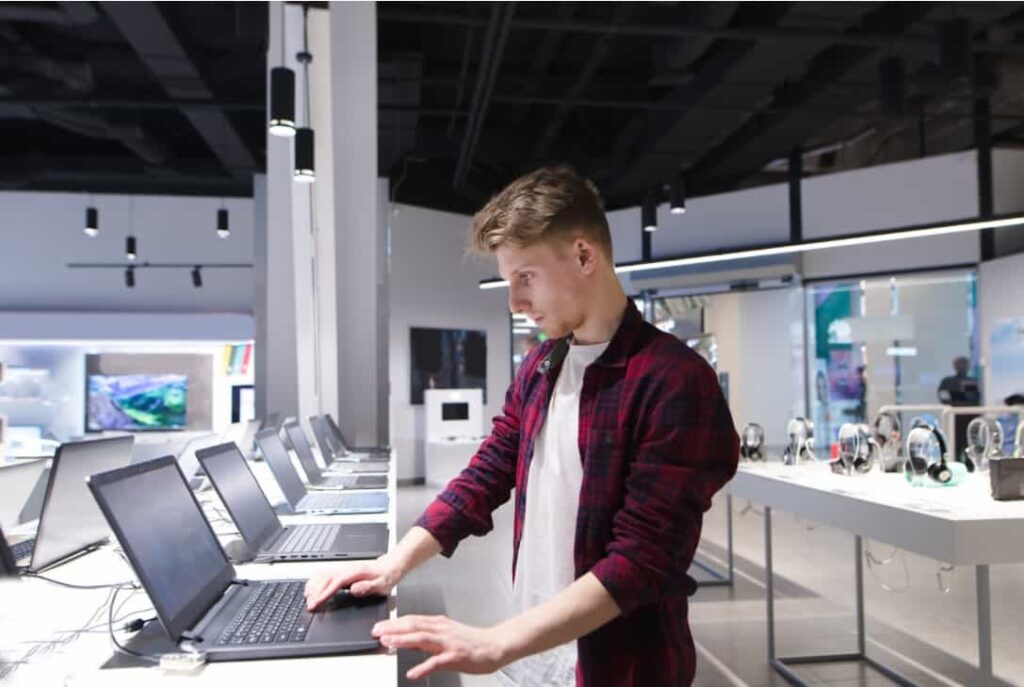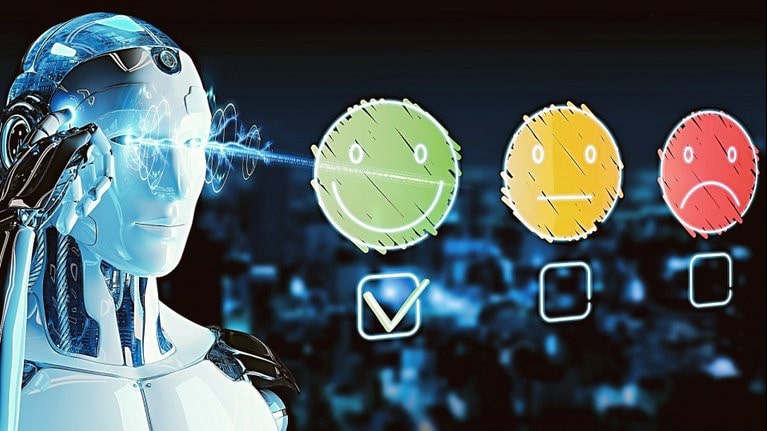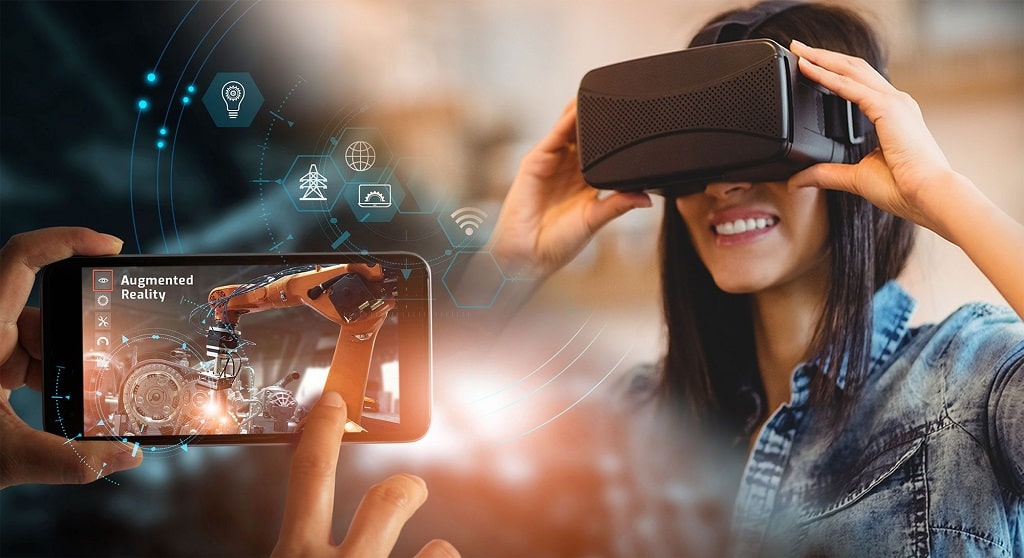Have you been thinking about buying a new laptop computer? If so, there’s never been a better time to shop for a new mobile device.

After all, technology has come a long way in recent years. This means that laptops are lighter and faster than ever before. Plus, there are plenty of great deals available for the smart shopper who knows where to look.
This article takes a look at tips for buying a laptop you should know before breaking out your credit card. Keep reading to get the inside scoop on what to look for so that you’ll find the best machine for your money.
1. Know Your Budget and Stick to It
When it comes to choosing a laptop, you’d be wise to understand exactly how much you have to spend before you start shopping.
After all, there are a ton of machines to choose from. The key is to take a look at your finances, set a spending budget for your new machine, and then be disciplined about sticking to it.
Keep in mind that you can spend as much as you like, but you can often find a great machine at a great price, so be patient and understand what you need more than focusing on flashy bells and whistles.
2. What Do You Plan to Use It For?
It’s also important to take the time to really think about how you’ll be using your new laptop. Because every machine is different, and many machines are designed for specific purposes.
For example, some laptops are built for speed, making them ideal for gaming. But if you’re a student simply looking for a great laptop for class, you won’t’ need a machine that’s built for much more heavy-duty processing power or impressive graphics.
Perhaps you’re wanting a multi-purpose machine that will provide a lot of flexibility, from writing term papers to playing the latest online video games. That’s great, just be prepared to pay for it.
Do you need a laptop for work, generating reports or video-conferencing with members of your team or clients around the world? If so, keep these specific tasks in mind when shopping for a machine or speaking to a salesperson about what they have to offer.
The key is to remember that being as specific as possible about your intended use for your new laptop can help save you a ton of money.
3. What to Look for In a Processor
Now let’s talk about specific hardware options to keep in mind as you begin the process of shopping for a new machine.
One of the items at the top of your list should be the processor. After all, the CPU is really the most important part of your laptop. It’s the brain that provides the speed of processing for whatever task you happen to be working on.
You’d be wise to make room in your budget for a powerful processor. This is the best way to create the ultimate user experience. Why? Because the more powerful the processor, the more smoothly your machine will run, regardless of the complexity or demands of the task, from building spreadsheets to playing a graphics-heavy game.
4. What to Look for In RAM
Next, let’s move to RAM.
Random Access Memory is a computer system’s physical memory. The more RAM your computer has, the smoother your applications will run.
It’s important to keep in mind that your laptop has limited space, thus it can only hold a limited amount of RAM, especially when compared to the amount of RAM available in a desktop computer. Thus it’s easy to max out pretty quickly.
When you need a laptop that will provide an optimum amount of processing power for tasks such as video editing, producing music, or designing computer graphics, you’ll need a minimum of 4GB RAM.
You should also look for a specific type of RAM. For example, when you rely on your machine for speed, look for a laptop with DDR3 RAM rather than DDR2. This is because the DDR3 runs at a much faster frequency than the older version.
5. What to Look for In a Hard Disk Driver
The third thing on your list should be the size and quality of the hard drive. This part of the machine provides storage space for all the data that you load onto the laptop.
Data stored on a computer hard drive includes everything from photos, documents, videos, software, and a wide variety of other system files. You also need plenty of hard drive space for storing programs and applications that enable you to be productive.
When you buy a budget-priced laptop, you can expect it to come with a hard drive with 320GB of space. Keep in mind that this is a very limited amount of space, thus you won’t be able to store much on it. You’d be much better off investing in a larger hard drive that will provide greater flexibility.
You’d also be wise to invest in a laptop that features a solid-state drive. This type of drive doesn’t have moving parts, making it more durable and far faster than a traditional HDD. If you plan to buy a high-end machine, be sure to spend a little extra on a quality SSD.
6. Screen Size
Laptops offer limited screen size. Most machines today come with a 14.1-inch screen, though you can certainly opt for something bigger or smaller. Again, the key is to choose a screen that will provide the best user experience.
7. Screen Type
There’s also more than one type of laptop screen. Most experts would recommend investing in an HD screen with anti-glare features that will enable you to watch movies in HD resolution. You could also choose a touch-screen so that you can easily navigate the user interface.
8. Battery Life
Laptop batteries have improved considerably over the last few years. In fact, even the least expensive laptops on the market now feature batteries that will last a minimum of 4 hours. The key is to decide how much battery life you’ll need to meet your specific needs.
9. Operating System
There are two main types of operating systems in the modern world. These are Microsoft Windows and macOS.
Most computer owners either prefer Windows machines or Mac machines. Just keep in mind that your choice of operating system will likely impact the price of your machine. After all, the price for a Mac machine will be a bit more expensive, but you’re also investing in higher quality.
10. Picking a Brand
Some people are brand loyal, while other people don’t give much thought to the brand they purchase. This is especially true when it comes to the average laptop user. The brand actually doesn’t matter quite a bit, and yet the components inside your machine should be your top priority.
11. Consider Ports and Compatibility
Do you have external components that you need to attach to your laptop? These could include everything from external drives to mobile devices. If so, make sure the machine you’re interested in comes with at least two or three USB peripheral ports.
Be sure to check out these Lenovo laptops.
12. Resolution
Resolution can make a huge difference in the user experience of a laptop. Especially if you’re planning to watch a lot of movies or play video games.
The resolution on your machine is tied directly to the quality of your screen. Many modern laptops now offer 4K resolution, which is pretty awesome. Just keep in mind that saving a few bucks now might turn into a major headache when you realize that the lower resolution is lackluster.
Gamers and graphics designers obviously want to invest in maximum resolution. But this will cost you, especially when you combine the costs of both HD resolution and a super-powerful processor.
13. Keyboard Quality
Everyone has a different opinion about keyboards. Because while some people don’t give much thought to their laptop keyboard, plenty of other people get kind of obsessive about it.
The more time you spend using your laptop, the more you’ll notice how the keys react to touch, as well as the way the keys are positioned and spaced.
The key is to choose a laptop keyboard that is going to be most comfortable and least taxing on your hands and wrists. It’s also a good idea to choose a machine with a quality trackpad.
14. Don’t Buy the Most Expensive
Now let’s talk a bit more about price. Because as with anything, the most expensive laptop doesn’t make it the best laptop on the market. There are plenty of types of laptops loaded with plenty of great features. But just because you spend a small fortune doesn’t mean you’re getting the best product.
15. Don’t Buy the Cheapest
You also shouldn’t buy the cheapest machine. After all, you might save a few dollars, but the experience will probably be rather miserable. This laptop buying guide should help you find the perfect machine without breaking your bank account.
The Ultimate List of Tips for Buying a Laptop Every Shopper Should Know
When it comes to buying a new computer, the goal is to get the most machine for the least amount of money. Fortunately, these tips for buying a laptop will help you get started.
Keep scrolling to find more great tech tips and advice on this blog.






![[Top 9] Chat Forums on Deep Web | Deep Web Chat Rooms | Enter At Your own Risk Top 9 Chat Forums on Deep Web, The Lolita City, onion deep web, dark web lolita, lolita city,](https://www.gadgetgyani.com/wp-content/uploads/2018/03/deep-web-CHAT-FORUMS.jpg)













